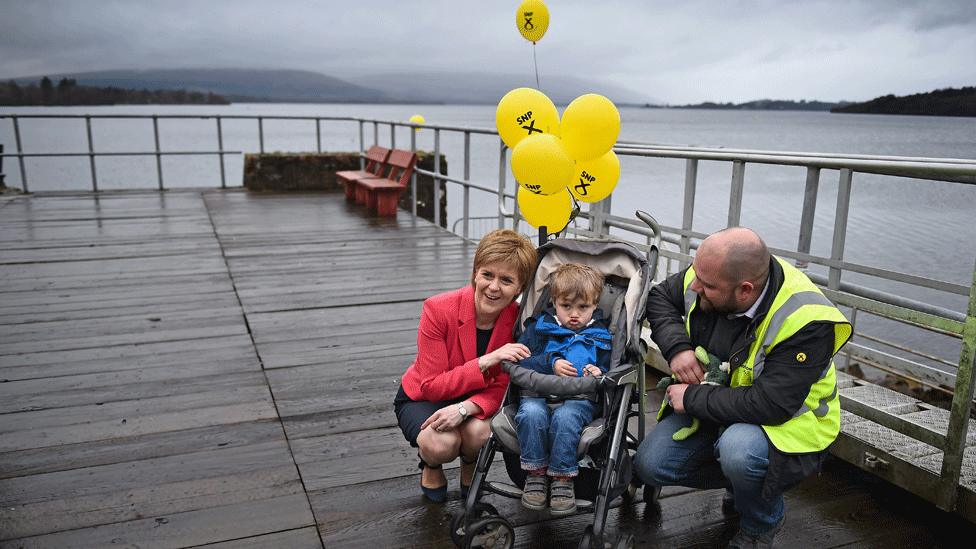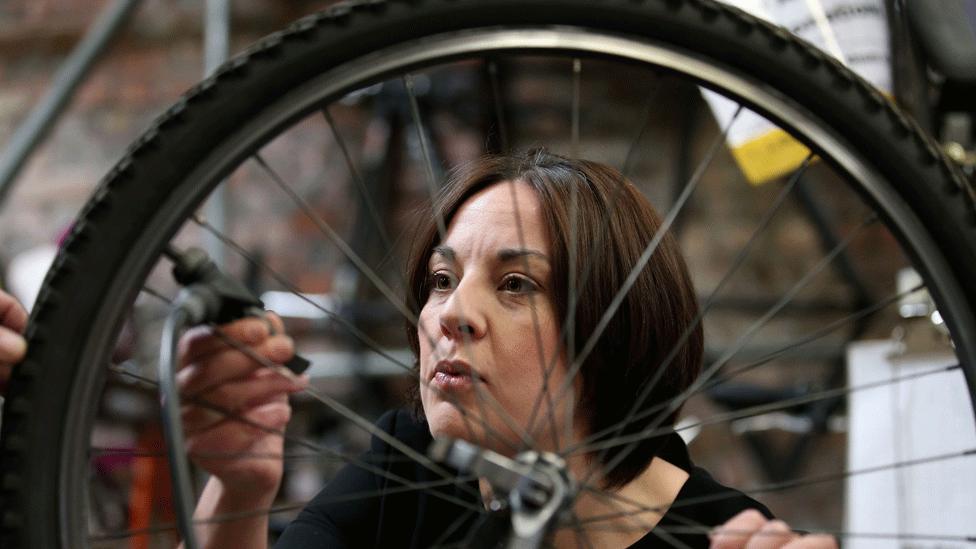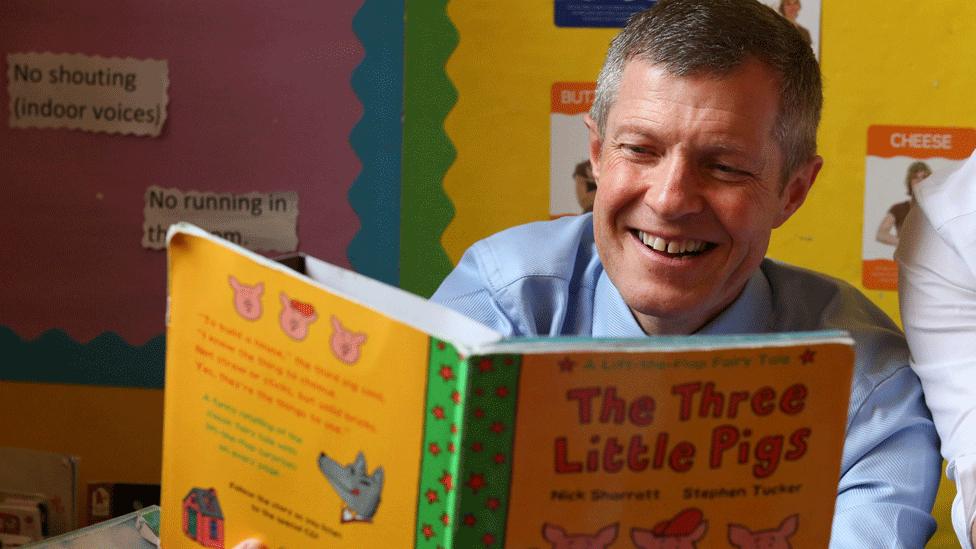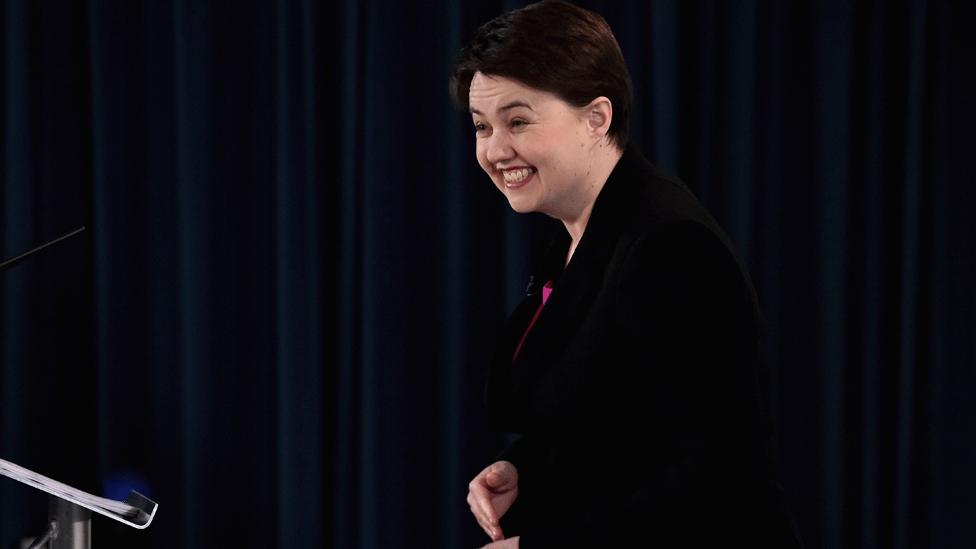Holyrood election 2016: What day are we on?
- Published

SNP leader Nicola Sturgeon is on the campaign trail
It was one of those daft, arcane arguments. Was this, sundry souls wondered, Day Zero of the election campaign? Or Day One? Or perhaps Two if you count yesterday afternoon when our formerly elected tribunes took to the streets, parliament having dissolved?
Incidentally, isn't there something grim and apocalyptic about that word "dissolved"? Even worse is the concomitant noun "dissolution". Makes it sound as if our once and (in some cases) future MSPs have been involved in some louche chicanery. You know, dissolute?
Which they have not. Enough, Brian, enough. Exit this by-way. Let me escape by answering my own daft question. This is, roughly, Day 1800 or so of the Holyrood election campaign which, of course, began the moment the last one ended. Politics, in that sense, operates in loops rather than cycles.
Whorls within whorls.
Said arcane argument emerged while various members of the wicked media and assorted political apparatchiks were awaiting the arrival of a slightly tardy leader.
There will be much such meandering in the six weeks to go before Scotland goes to the polls. However, by contrast, there is a cheering degree of clarity in the choices to be presented before the electorate.
Firstly, this election may be more about existing and future Holyrood powers - and particularly taxation - than about constitutional wrangling over the nature and scope of those powers.
That is undoubtedly because the new powers coming Holyrood's way are substantial. I am not, repeat not, saying that the argument about independence is over. That is very far from the case.

Kezia Dugdale, leader of the Scottish Labour Party, wants to spike plans to give higher earners a tax break

Willie Rennie, leader of the Scottish Lib Dems, says he has a funding plan for education

Ruth Davidson, leader of the Scottish Conservatives, says her party is the only one solidly behind the UK
However, most political leaders contemplating this immediate contest - including Nicola Sturgeon - say this will be an election about tax and spending.
Of the parties, the Conservatives seem keenest to refight the referendum. That is because they believe they can corral into their camp a substantial chunk of those who voted No in September 2014.
Ruth Davidson, therefore, offers to form a bulwark against a second referendum - and against tax hikes, believing that there will be a fair proportion of the voters who share those views. Before the party's precipitous decline, such voters used to be called "Tories". She wants to rediscover them, using distrust of the SNP as a lever.
Labour and the Liberal Democrats want to place themselves into contradistinction with the SNP over tax. They each offer to increase income tax across the board by one per cent, primarily to fund education.
Perhaps understandably, Labour seems rather keener to talk about the proposed hike in the rate for the very highest earners. Kezia Dugdale mentions it at every opportunity, contrasting the policy with what she believes is pusillanimity on the part of the SNP.
First full day of campaigning
By contrast, Ms Sturgeon loses no chance to remind voters that Labour's wider plan involves an overall increase in income tax - albeit one that the party says would be rebated (by a soon to be disclosed method) to protect the lowest earners.
Ms Sturgeon's talk is of balance. Reversing almost all of the tax cut for 40p rate payers set out by the Chancellor. But steering clear of a hike in the standard rate - or indeed the upper and top rates.
However we bill today, hasn't there been a remarkable calendrical concatenation?
Today would have been Independence Day for Scotland, had the referendum gone the other way and had the SNP's envisaged timetable for negotiations been met.
Today is the first full day of unsullied campaigning, with Holyrood in hibernation. And, just as that occurs, Westminster endorses the Scotland Bill to confirm finally that the Scottish Parliament is to have new powers over tax and welfare and more.
A relatively gentle start today out on the streets and, in the SNP's case, waterways. Stand by for the BBC Scotland debate at 21:00 on BBC One Scotland.